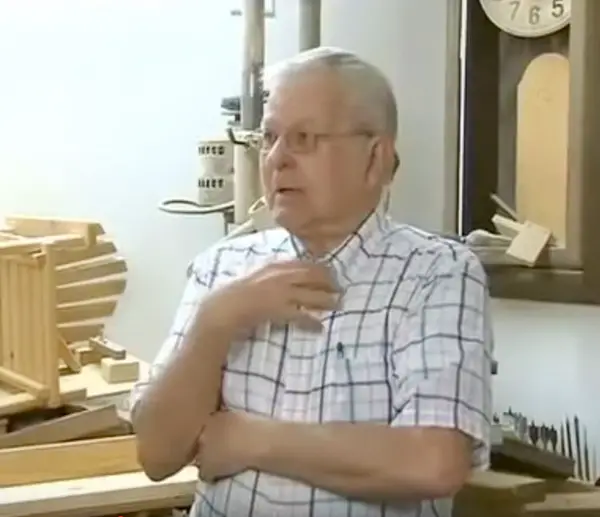Awaiting the arrival of a baby is one of life’s most joyous and anticipatory experiences. Future parents are often filled with excitement, picturing all the wonderful moments they’ll share with their new child. But for Valerie Watts, the experience took a tragic turn, leading her down an unexpectedly heartbreaking path.
Valerie, like any expectant mother, was eagerly counting down the days until she could hold her newborn in her arms. She dreamed of meeting her little one and seeing his face for the first time, a vision that filled her with happiness. Unfortunately, this dream was shattered in the most painful way when she gave birth to a stillborn baby boy.

For the majority of her pregnancy, everything had seemed normal. The baby was developing well, and Valerie was hopeful and excited. But in the final week before her due date, Valerie began to notice subtle but concerning changes. “All week, I knew something wasn’t right,” she later recalled. “He wasn’t moving as much. I was very nervous.” Despite her instincts, there was little she could do to alter what fate had in store.
The baby, whom she named Noah, tragically lost his life before he even had the chance to take his first breath. In a heartbreaking twist, it was discovered that Noah’s umbilical cord had become compressed in the womb, ultimately cutting off his lifeline. Valerie was left devastated by this unexpected loss, a grief that no words could adequately express.
As she tried to cope with her sadness, Valerie found herself unable to part with the items she had lovingly prepared for Noah, particularly the crib she had bought in anticipation of his arrival. The crib represented both her hopes for the future and a painful reminder of what she had lost. Although keeping it was emotionally challenging, she couldn’t bear the thought of letting it go.
Then, something remarkable happened. Gerald Kumpula, a woodworker from a nearby town, came across Valerie’s garage sale. He didn’t know her story or the heartbreak she had endured. As he browsed the items for sale, his eye caught the crib, which was not officially up for sale. Intrigued, he asked Valerie if she would consider selling it to him.
Gerald’s genuine interest in the crib was met with hesitation from Valerie. “When he asked me if I was selling that, and said that he made benches, I hesitated,” she recalled. She knew she wasn’t ready to part with it, but she also sensed an unexpected connection in Gerald’s kind approach. Ultimately, she agreed to let him have the crib, though it was not without mixed emotions.
At that moment, Gerald had no idea of the deep sentimental value attached to the crib. It was only when his wife, who was also present at the garage sale, asked Valerie about her baby, unaware of the tragic outcome, that they learned the truth. As they sorted through baby clothes, Gerald’s wife innocently inquired about the age of Valerie’s child, wondering why the crib was no longer in use. With a heavy heart, Valerie explained that her son had passed away in July, bringing a somber understanding to the encounter.
Deeply moved, Gerald knew he had to do something special. He decided to transform the crib, not as just another project, but as a tribute to the little boy who never had the chance to sleep in it. He envisioned a unique way to preserve the crib’s memory, turning it into something beautiful and enduring.
Upon finishing his work, Gerald returned the transformed crib to Valerie, now reimagined as a bench. It was no longer simply a piece of furniture but a heartfelt symbol of remembrance. The bench stood as a testament to Valerie’s love for her child and as a way to honor the short but meaningful existence of baby Noah.
When Gerald presented Valerie with the bench, her reaction was one of overwhelming emotion. “I started crying instantly,” she admitted. In that moment, the weight of her loss and the kindness of a stranger collided, providing a bittersweet sense of comfort. The bench became not only a symbol of the hardship she had endured but also a source of solace, a small reminder that kindness can emerge even in the darkest times.

This bench, once a crib that held the dreams of new life, now served as a lasting tribute to Noah. It reminded Valerie that, while her son may not have been able to live the life she had hoped for him, his memory would remain ever-present, carried in her heart and symbolized by the bench.
The gesture from Gerald and his wife was a powerful reminder of the human capacity for empathy. They showed that sometimes, even small acts of kindness can help ease the pain of unimaginable loss. For Valerie, the bench offered a quiet place to sit, reflect, and remember Noah—a place to find peace amid the sorrow. Through Gerald’s craft and compassion, Valerie found a new way to cherish her son’s memory, finding beauty and comfort in the gift he had given her.
In the end, this story reveals how healing can sometimes come from the least expected sources. For Valerie, the kindness of a stranger provided a glimmer of hope, helping her remember that, despite her loss, Noah’s presence would never truly fade.





